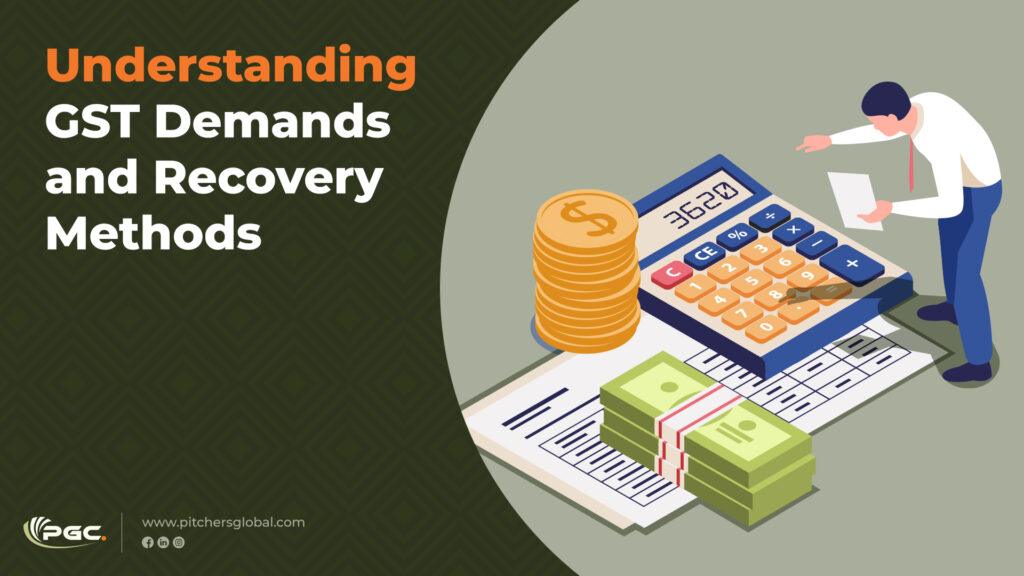What Is a GST Demand, and Why Does It Arise?
A GST (Goods and Services Tax) demand arises when a taxpayer fails to comply with their tax obligations under the GST regime. However, the GST Demands & Its Recovery Methods can be useful for you to adhere to compliance. Thus, such a demand can be triggered by several factors, including:
- Non-payment of GST dues: Failure to deposit the tax owed within the due date.
- Errors in tax filing: Mistakes or inconsistencies in GST returns.
- Incorrect Input Tax Credit (ITC) claims: Claiming ITC on ineligible items or overstating ITC.
- Suppression of taxable turnover: Deliberately underreporting taxable sales to evade tax liability.
Consequences of Failing to Pay GST Demands
If a taxpayer fails to pay the demanded amount within the specified timeline, recovery proceedings are initiated under Chapter XV of the GST Act. These proceedings empower tax authorities to enforce compliance and recover the unpaid amount using various methods.
How Does the GST Department Recover Unpaid Dues?
The GST Department employs several recovery mechanisms under Section 79 of the GST Act to collect unpaid dues effectively. These include:
- Direct Deduction The authorities can directly deduct the unpaid amount from any refunds payable to the taxpayer.
- Attachment and Sale of Property The department can attach and sell the taxpayer’s movable or immovable assets to recover dues.
- Recovery from Third Parties If any third party owes money to the defaulter, the department can demand the payment directly from them.
- Magistrate Intervention The tax authorities can approach a magistrate to recover dues as if they were fines imposed by the court.
Implications for Debtors Paying Defaulters Post-Notice
If a debtor pays a defaulter instead of the government after receiving a recovery notice, the consequences are significant:
- Personal Liability: The debtor becomes personally liable to the government for the unpaid dues.
- Limited Liability: The liability is capped at the lesser of the amount paid to the defaulter or the dues owed to the government.

Are There Exemptions for Third Parties from Liability?
Yes, third parties can claim exemptions under specific circumstances. If a third party can demonstrate that no money was due or is likely to become due to the defaulter, they are exempt from complying with the recovery notice.
Relevant Forms for Recovery from Third Parties
Rule 145 of the GST rules outlines the process for recovering dues from third parties. It specifies two critical forms:
- Form GST DRC-13: This form is issued to notify the debtor of their obligation to pay the amount owed to the government.
- Form GST DRC-14: This form serves as a certificate acknowledging that the debtor has discharged their liability as directed.
Conclusion
GST compliance is a crucial responsibility for businesses, and failing to meet tax obligations can lead to serious consequences, including recovery actions. Understanding the recovery mechanisms under the GST Act helps businesses navigate such situations and take preventive measures to avoid non-compliance. Staying vigilant, filing accurate returns, and ensuring proper ITC claims are essential to maintaining compliance and avoiding GST demands.
Navigate through the complexities of GST Demands & Its Recovery Methods with Pitchers Global.
